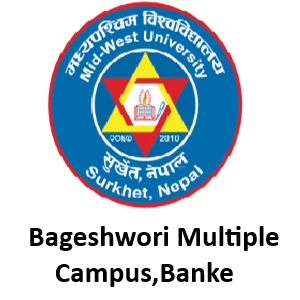Overview
Overviews of Master of Arts (MA) in Rural Development at Mahendra Multiple Campus, Nepalgunj, Nepal (affiliated with TU)
Course Overview:
The MA in Rural Development (MRD) program at Mahendra Multiple Campus Nepalgunj focuses on the study and practice of sustainable rural development. It equips students with the knowledge and skills to address the challenges faced by rural communities and contribute to their overall socio-economic development.
Course Outlines:
The MA in Rural Development program covers a wide range of subjects, including:
- Introduction to Rural Development
- Rural Development Theories and Approaches
- Rural Sociology
- Rural Economics
- Agriculture and Rural Livelihoods
- Community Development
- Rural Governance and Policies
- Gender and Development
- Natural Resource Management
- Research Methods in Rural Development
These course outlines ensure a comprehensive understanding of rural development principles, strategies, and practices.
Duration: The MA in Rural Development program at Mahendra Multiple Campus Nepalgunj has a duration of 2 years, divided into 4 semesters. Each semester consists of approximately 6 months of academic study.
Objectives:
The objectives of the MA in Rural Development program are as follows:
- To provide a solid foundation in the theories, concepts, and practices of rural development.
- To develop critical thinking and analytical skills for addressing rural development challenges.
- To foster an understanding of rural communities, their socio-economic dynamics, and cultural contexts.
- To enhance research and project management skills in the field of rural development.
- To promote sustainable and inclusive development practices in rural areas.
Eligibility:
Candidates applying for the MA in Rural Development program at Mahendra Multiple Campus Nepalgunj must meet the following eligibility criteria:
- Completion of a Bachelor's degree in Rural Development, Agriculture, Sociology, Economics, or a related field from a recognized university.
- Meeting the minimum academic requirements set by the college.
Learning Outcomes:
Upon successful completion of the MA in Rural Development program, students will:
- Demonstrate a comprehensive understanding of rural development theories, concepts, and approaches.
- Apply interdisciplinary knowledge to address rural development challenges and promote sustainable development practices.
- Conduct independent research and evaluation of rural development projects and programs.
- Analyze and propose strategies for enhancing rural livelihoods, agriculture, and natural resource management.
- Collaborate with stakeholders and communities to design and implement community-driven development initiatives.
Scope:
The MA in Rural Development program prepares graduates for various career opportunities and roles, including:
- Rural Development Officer
- Project Manager
- Community Development Specialist
- Rural Development Consultant
- Policy Analyst
- Researcher
- NGO and Development Organization Officer
- Academician/Professor
Fees Structure:
For detailed information about the fees structure, prospective students are advised to contact the administration office of Mahendra Multiple Campus Nepalgunj. The administration office can provide accurate and up-to-date information regarding the fees for the MA in Rural Development program.
Career Prospects:
Graduates of the MA in Rural Development program have diverse career prospects, including:
- Employment in government agencies and ministries dedicated to rural development.
- Opportunities in non-governmental organizations (NGOs) and development agencies working in rural areas.
- Careers in research and academia, contributing to the field of rural development.
- Consulting roles, providing expertise and guidance on rural development projects.
- Entrepreneurship and social enterprise initiatives focused on rural development.
Career Options:
The MA in Rural Development program opens up various career options in the field of rural development, including:
- Rural Development Officer
- Project Manager
- Community Development Specialist
- Program Coordinator
- Policy Analyst
- Researcher
- Rural Entrepreneur
- NGO Officer
- Academician/Professor
Why Choose this Course:
There are several reasons to choose the MA in Rural Development program at Mahendra Multiple Campus Nepalgunj:
-
Real-World Relevance: The program equips students with practical knowledge and skills to make a meaningful impact on rural communities and contribute to their development.
-
Interdisciplinary Approach: The program adopts an interdisciplinary approach, combining theories and practices from various fields, including sociology, economics, agriculture, and governance, to provide a holistic understanding of rural development.
-
Career Opportunities: Graduates of the MA in Rural Development program have a wide range of career opportunities in government agencies, NGOs, research institutions, and academia.
-
Community Engagement: The program emphasizes community engagement and participatory approaches, allowing students to work closely with rural communities and learn from their experiences.
Scholarship:
Scholarship opportunities may be available for deserving students pursuing the MA in Rural Development program at Mahendra Multiple Campus Nepalgunj. Prospective students are encouraged to inquire about scholarship programs and eligibility criteria at the administration office for detailed information.
Contact Mahendra Multiple Campus's administrative office for detailed information on the Master of Arts (MA) in Rural Development course, including fees, scholarships, facilities, counseling, eligibility criteria, etc.













